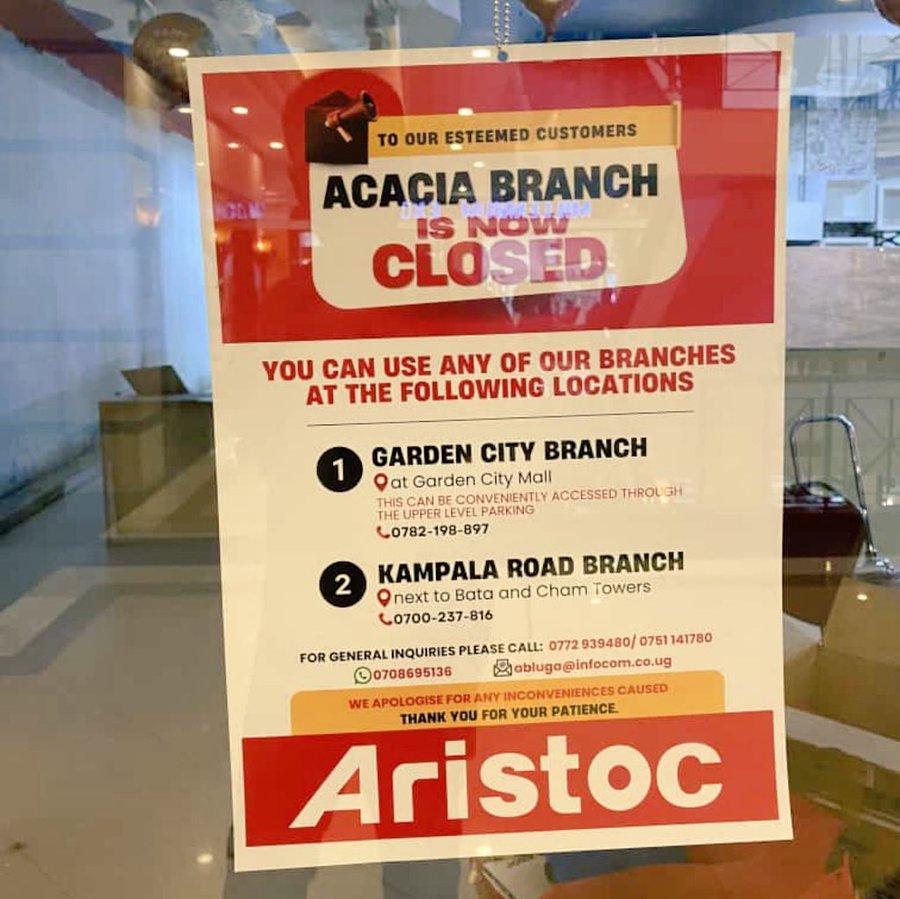By now, we assume that everyone that comes to Ortega Group stands on the same page when it comes to the definition of strategy. Strategy is an attempt to answer two questions:
- Where to compete? What position to occupy on a business landscape?
- How to compete? With what advantage shall that position be occupied?
Aristoc Booklex was one of Uganda’s early movers in the book industry. After Uganda Bookshop, Aristoc was the first to really brand themselves as a one-stop centre for all book needs. Thus, from textbooks, to gifts to stationary, to fiction and non-fiction, Aristoc positioned themselves as the place that had every book one needed in Uganda. And with this, they were able to charge a premium as Uganda’s leading book store. Aristoc was founded in 1991 by the lawyer John W. Katende, now a Senior Partner with Katende, Sempebwa Advocates. Katende is also the man behind ‘The Ebonies’ , a drama group in Uganda.
Whenever parents scavenged all the bookshops downtown and couldn’t find a book they needed, Aristoc was always the place of last resort. Aristoc was to books what Friecca pharmacy was to the pharmaceuticals. They were early on the experience curve; they had a first mover advantage, and they charged a premium for it. Many joke, that Aristoc was aimed at the aristocrats of Uganda (and these have been shrinking over time).
This year (2024), Aristoc shocked everyone when it closed its branch at Acacia Mall. The usual narrative immediately went to; ‘Ugandans do not read.’ Yet, these same ‘Ugandans that do not read’ had sustained Aristoc over the years and enabled its expansion to the different locations. Something was surely amiss in Aristoc’s strategy, and it has always been amiss.

The Dilemma in Aristoc’s Strategy
Aristoc always positioned itself in the premium space of the book industry. This also informed their choice of store location. They were found in the high-end malls such as Acacia. Aristoc was certain that no one could ever achieve their advantage, they had created a strong brand and connections with both local and international publishing companies. If you were an author in Uganda, you had no option but to seek a listing in Aristoc. It was never an easy process. Aristoc owned the platform and you had to plead for the platform.
Yet, Aristoc also missed the globalization effect. Aristoc’s Innovator’s Dilemma played out in the sense that having been the first to read the market, they failed to also see the next phases of the market. But fundamentally, Aristoc forgot about the most important person, the reader. The reader was never at the centre of Aristoc’s strategy.
The Aristoc stores were and are designed in such a way to discourage readers. Aristoc has never been interested in nurturing, building and growing a reader’s community in Uganda. In their stores, there’s even a fine for over-staying one’s presence. By the time of this article, this meant staying more than 30 minutes in their store before picking a book was an offense. Not only that, Aristoc couldn’t move onto the online model. It’s perhaps in the last two years that they went ahead to accept shipping books online on behalf of a customer. But this too, was a cumbersome process and came at a premium. Then, Aristoc also suffered on its titles, and continues to suffer on its titles. But this again comes from the fact that they have been detached from the reader, their true customer. By choosing to ostracize the reader, they ended up becoming like any other bookshop in Kampala, any other gift shop. The only difference is that Aristoc would charge a premium for the same items.
Immersion in Culture
Why wouldn’t Aristoc have a community of over 1000+ readers for all the years it has existed? Why wouldn’t Aristoc be at the core of readers clubs in various schools? Why wouldn’t Aristoc be the powerhouse when it comes to readership? When has Aristoc ever organized a readers’ forum or an authors’ forum? Aristoc was never intentional about building the very culture that was at the core of their business.
Aristoc thought and still thinks it’s in the business of selling books. Far from it, it must see itself as selling the culture and beauty of reading, the psychological benefits that accrue from readership. Their stores too must speak to that readership culture. They can keep the bookstore, but they must have an element of the library, a reading space. Their stores must be redesigned with this function in mind. Aristoc must also have an active online delivery option. Books are the easiest thing to deliver, why wouldn’t Aristoc have that ability? The next ability would be for one to shop from Amazon but receive from Aristoc. Aristoc must think about this kind of integration.
Again, in discussing Aristoc, we are emphasizing that core definition of Strategy as an integrated set of mutually reinforcing decisions based on one’s unique capabilities, thus offering superior profitability over the long-term. Thus, strategy is about that orchestration of the whole, including making the necessary trade-offs and achieving the strategic fit based on one’s choices.
Again, the simple question: What is Aristoc’s competitive advantage at the moment? What currently makes Aristoc unique? Apart from charging a premium for its products, and having a bigger stock of books, there’s nothing to be said of Aristoc as a brand that has been existent for all these years. There’s an urgent need to reinvent themselves but reinvent themselves around that readership culture. Why wouldn’t you have an Aristoc club? Why not build some kind of network effects around the Aristoc brand? Why wouldn’t one earn points on every book they purchased so that over time, it becomes cheaper to get the next book from Aristoc? Why does Aristoc just hate the reader? At least going by how everything in their stores is set up. And why are the people hired by Aristoc almost disinterested in books? They do not know authors; they do not know about the books they’re selling.
You see, everything links to the next, and next. Aristoc has failed to carry through with their differentiation strategy. A differentiation strategy is about increasing a buyer’s willingness to pay (WTP), through the offering of more value. Aristoc must stop thinking that they’re only selling books, they must stop imagining that it’s 10 or 15 years ago when the internet was expensive, when few Ugandans travelled. Aristoc must reinvent themselves before it’s too late. Cost-cutting through branch closure could be a great decision, but it can only give temporary relief, the real question is how to reimagine the Aristoc business. What is Aristoc about? Who is Aristoc serving? What is Aristoc selling? And how has the world moved around Aristoc?
Photo Credit: John Won: www.flickr.com/johnwon

